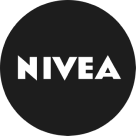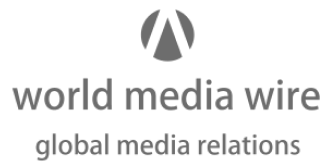Other than being useful for reputation management and measuring PR results, social media monitoring tools track data that can have an impact on event management as well. Events usually rely on creating hype and anticipation in order to sell tickets, both predominantly done online via traditional media outlets and social media. Therefore, it is of great importance to implement social listening into event planning. It can directly affect your event’s performance and increase the likelihood of a successful outcome.
? Read Media Monitoring: The Ultimate Guide
No matter what type of event you are organizing, here are some tips to utilize as an event manager:

1. Before the event
Use social media listening to discover opportunities or identify possible issues before the event itself. Whether you’re just starting to gather ideas for your future event or you’re in the process of planning it, doing your research ahead of time means having more effective engagement further down the line and creating a better quality event in general.
Check the popularity of the theme of your event
If you’re not sure where to start when choosing a theme for your event, social media listening can be a great way of doing some market research. You can use Determ to track some topics you might want to cover at your event. Also, you can see if people are interested in it, or discover new opportunities that aren’t talked about enough.
Let’s say you want to organize an event focused on the topic of mental health in the United Kingdom. The first step would be to set up a new query tracking ‘mental health’, ‘mental health awareness’, or any other keywords you might think of as relevant. Limiting the location to the UK only will mean the results will give you an insight into how popular is the topic in your desired event location. Word cloud could even give you some ideas about the name of the event if you already didn’t think of one.

As you can see, the topic of mental health has been talked about recently. It peaked after the National Health Service announced plans on recruiting workers to help loneliness and mental illness. So, other than being a great cause to contribute to, the data shows that now is a great time to encourage further discussions and education about it.
Choose the right social media channels to promote your event
Having an insight into what channels or platforms people are already talking about certain topics the most on means an opportunity to identify the right outlet for promoting your event in order to reach your target audience.

Our reports show that the channels most people use when talking about mental health are Twitter, web, and Facebook. Hence, these would be a great choice for reaching the people interested in the topic.
All these factors contribute to better ticket sales, as you will have a great base to organize an event people would love to attend and using the right channels to further share the word about it and create hype.
Evaluate the public perception of your event location and main speakers
Other than identifying interesting topics, social media listening can also be utilized to discover new speakers for your event or find out how your audience feels about the line-up you have already chosen. Sentiment analysis is a great way to gain insight into how the stars of your show are perceived by the public, so you can adjust or improve your strategy accordingly.
Let’s continue with our fictional mental health event. Say you managed to get Zoe Sugg, popularly know as Zoella, to speak at your event. Zoe would seem to be a great choice. She’s widely popular as a YouTube star and has a following of almost 12 million people on her YouTube channel alone. Furthermore, she has openly talked about struggling with her mental health in the past. So, what does our Sentiment analysis say about Zoe’s public perception in the UK?

It’s mostly positive, so she would be a great choice. The same can apply to any person you might consider to be a part of your event.
Finding the right location for your event can be just as important. Track mentions of the venue where your event is happening to discover previous experiences of its visitors and possible opportunities or issues that may occur. There is a saying that good preparation is half of the work. Make sure you do all the research needed to ensure people will find your event easily and have a pleasant experience visiting a certain location.
Promote and find promoters
When all the planning is set and done, it’s time to spread the word about the event. Facebook Events is a free tool for sharing and advertising your event within the platform. Having Location tags means users can easily find directions to your event. Date and time provide information that is also used by the Facebook algorithm. It places your event in people’s feeds at the right time. Furthermore, it is a great way to reach even more people. Every time a person clicks “Interested” or “Going”, it will be shared on their friends’ news feeds.
If you’ve invested in advertising and promotion of your event, checking how your efforts are performing is crucial in order to be able to adjust your strategy on time. Use Determ to see if the media is reporting about your event. Also, find out how people on social media are reacting to it.
You might also want to find the right people to promote your event. Discover influencers via Determ to boost your ROI and reach new audiences. Since people tend to believe influencers’ recommendations more than brand ads, this is a great marketing tool to implement into your strategy.
Determ will show you top influencers sorted by reach, source, number of mentions, and sentiment. That way you can make decisions based on relevant data. We’ve extracted the Top influencers by reach from our ‘mental health’ report to show you how the tool sorts the data. You can use this information to further promote your event. Easily connect with relevant influencers or choose the right media outlets.

Monitor online chatter to be of help to your visitors
Social media listening can also be a great way to predict how interested people might be in the event itself and the outcome. Monitor online chatter to find out what features of the event people are the most excited about.
Track the official hashtag to also do customer service
It would be an excellent idea to create a hashtag that people could use when talking about your event. This way, not only is the online chatter more structured, but it is also easier for your (potential) visitors to see what others are saying about it and tune in to the conversation or find relevant information posted under that hashtag. Additionally, you can see all the photos posted by your visitors on Instagram under the official hashtag or the location.
If people have additional questions about the event, they might address them via social media. This is a great way to do Customer service, as your (helpful) answers can be seen by a multitude of other users.
You can track mentions of your event or the official hashtag to see if there are people needing your help or guidance. For example, there might be people wanting to find the best route to your event. Others may be curious about the number of parking spots available. Some are looking for more information about the check-in procedure. Tune into the conversation and respond directly. As Determ tracks mentions in real-time, it allows you to be diligent and respond to your customers, even if they don’t directly contact you. The quicker, the better!
2. During the event
Listening to what your customers and visitors are saying during the event means you can further improve its quality. As we’ve mentioned, real-time tracking of online chatter means you can prevent potentially negative situations and experiences even before the event’s over.
Prevent bad press
Use social media listening to see if people are sharing their thoughts about your event. Maybe your speakers are posting about their talks too. This type of content is great for reposting or sharing by the official account behind the event. It can present a great insight for many people who are yet to visit your event.
If the comments are positive and you’ve made the effort to ensure everyone has a positive experience, it will attract numerous people and help build a positive image for your brand or cause. On the other hand, if you encounter some criticism, make sure to respond quickly and try to resolve the issue on the spot. Things don’t always go to plan and bad situations might happen, but it’s all about how you handle them.
3. After the event
After the event has finished, the most vital feedback will happen. Continue monitoring hashtags and mentions post-event. That is when people will surely share their opinions about the topics, presenters or speakers, and the overall experience. The majority of this will occur on social media or dedicated blog posts and forums.
Through Determ, all of those mentions can be converted into relevant data tailored for measuring the success of your efforts. The tool will show you reports about the number of mentions, total impressions, top influencers (including users and media) who talked about your event, the channels they used the most, the overall sentiment regarding your event, and over 2000 more custom charts. You can track how your queries have performed in a certain period and how that data compares to the previous period. Before the event, that is.
Use this information to report to event sponsors, improve your social media strategy, find future brand ambassadors, measure your ROI and plan your forthcoming events even better.
Interested in tracking your event with Determ? Book a demo and our experts will reach out to you.



